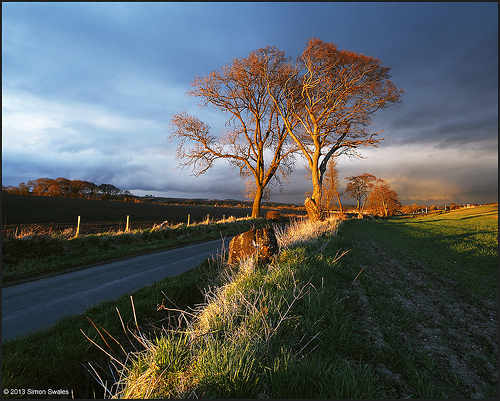

Yesterday, Richard Gunton reflected in Scholar’s Call and also described a working group of Christian ecologists in which he participates. Today we have the pleasure of sharing a Highlighting Community post on that group, part of the UK organization Faith In Scholarship (FiSch). Yoseph Araya reports from the UK’s Faith in Scholarship Working group on Ecosystem Services (FiSWES) research on nature conservation.
Valuing nature: Shall it be set on ethical or economic grounds?
Role of emerging scholars in framing conservation approach: an example from Faith in Scholarship Workgroup on Ecosystem Services, UK
“Easter People living in a Good Friday world.” Barbara Johnson
The recurring news about our Earth is often not good. Concerns ranging from global environmental issues to human tragedies, often as a consequence of both social and natural disasters abound (Pew Research Centre – http://www.pewglobal.org/2015/07/14/climate-change-seen-as-top-global-threat/).
Of course God is in the midst of it all. Yet in such a world falling short on good news and often lacking a moral anchor, people of faith are called to be beacons of hope (sensu Matthew 5:14) and strive to live as Easter People in a Good Friday world. In this context, we do have many Christians, and indeed the church, living the faith by praying, donating, advocating and even directly getting involved at disaster locations at home and abroad.
While it is guaranteed, there is a role for everyone in God’s kingdom; there is possibly a particular calling for emerging scholars. Emerging scholars are likely to have a big role to play in the future world, and thus should act as the incubation centre and testing ground for ideas and solutions shaped by God’s principles.
It is with this rationale, that the Faith-in-Scholarship initiative, based in the UK (http://faithinscholarship.org.uk/about/) operates. As emerging academics and fellow Christians we believe in a ‘reformational philosophy’ where we tackle academic and social challenges, through interdisciplinarity, while affirming God’s lordship over all of academia and Earth.
“Little by little raindrops gather to become a mighty flood.” Anon. proverb
The power of a well-organised and led community can’t be underestimated. Christians do have power to influence the world for good (see Stott, 2011) and many examples do abound. Consequentially and as such our particular service could be considered as really acknowledging God’s recognition of our talent for His purpose.
With this in mind, a task-group of Faith-in-Scholarship, called the Working Group on Ecosystems Services (FiSWES), is tackling an established secular conservation perspective, with a Christian theological one. The team consists of 12 academic thinkers from various organisations in the UK and is addressing the concept of ‘ecosystem services’ which currently is used by policy makers to decide on conservation action. It is built upon economic arguments and tends to utilise a human-centred approach. On the other hand, we propose to re-examine and broaden it to include a more ethical, value based framework, thereby adhering to what the Gospel teaches. We are also arguing there is practical merit to utilising our approach. More details are here: http://faithinscholarship.org.uk/category/fisch-working-group-on-ecosystem-services/. We are aiming and hoping to share our research among both people of faith and none, to provide a better framework for choice.
As we proceed in this, we are encouraged with the good-will we have found among our academic and faith communities. We also found the opportunity to share our faith by aligning it with our academic life, deeply enriching. We surely have come out with courage and conviction to make a better world.
References and Further Resources:
Faith in Scholarship: http://faithinscholarship.org.uk/category/fisch-working-group-on-ecosystem-services/
Jeeves, M and Sam Berry. Christians in Science: Looking back and forward. Science and Christian Belief. Volume 27 (2): 125-152.
Pew Research Centre (2015) Climate change seen as top global threat. (July 14th -2015). http://www.pewglobal.org/2015/07/14/climate-change-seen-as-top-global-threat/).
Stott, J (2011) Four Ways Christians can influence the world. Christianity Today. 20th Oct 2011.
http://www.christianitytoday.com/ct/2011/october/saltlight.html
Dr. Yoseph Araya is a plant ecologist and academic at Birkbeck, University of London and Open University, UK. Yoseph is keen about communicating science to the public as well as the role of citizen scientists in research and practical action. He is often spotted dreamily pondering about the next new things to learn, whilst sipping coffee.
twitter: @YNAraya

Leave a Reply